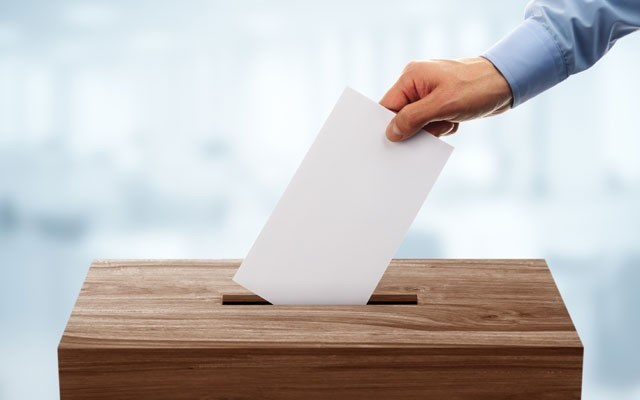Some may be surprised to hear it, but we sports guys get pretty amped up for election nights.
We're always eager to hop in and help with the quick and dirty breaking coverage.
In a lot of ways, it's what we're used to — who won, who lost, why?
So, please, forgive me for introducing a sports analogy into a political piece.
In football, teams are given the option to decline a penalty charged against their opponents when, oddly, accepting the penalty is the less advantageous choice.
One might think that if a team does something wrong, the punishment would be one that its opponent would always accept. Alas.
On the flip side, you'd think something ostensibly for the public good — the right to vote — would be something citizens would go out of their way to do at every opportunity. It's a simple act so many people are prohibited from doing by oppressive regimes. Many of those same people fight and die to achieve democracy, to make their own choices, to lift their own voices and to help foster fresh and new ideas.
Many Canadians have become complacent, however. In numerous recent elections, voter turnout has hovered around the halfway point. In the most recent major election, Manitoba's provincial derby last week, turnout actually increased from 2011 to roughly 58 per cent. About 7,000 more ballots were cast; however, about half of that is accounted for in the number of ballots declined. According to Elections Manitoba, 440 people declined their ballots in 2011. This year, that number rose to just over 4,000.
As an ex-pat of the Keystone Province, I had a vested interest in following the election and couldn't help but wonder how I would have voted. I don't think it's any huge surprise to regular readers that I consider myself to be, generally, left-leaning. I'll try to explain my conundrum succinctly without slipping into an unnecessary diatribe about the state of Manitoba politics.
The Progressive Conservatives, ultimately triumphant with 40 of 57 seats, were essentially inaugurated last spring after NDP Premier Greg Selinger survived a leadership vote by the skin of his teeth. It would have set a bad precedent, of course, to replace a sitting premier, but Selinger had lost the public trust after reversing course on a promise not to raise the PST, among other ill-advised missteps. The PCs were primed to win the election, but had the NDP rebooted itself on the fly, could have at least mitigated the damage. The Liberals, generally a background, comedic relief character in Manitoba politics, had replaced their old-guard leader with young, fresh lawyer Rana Bokhari to much initial optimism, but her most notable campaign promise was to remove the PST from salon services, and she generally showed her inexperience. The Greens had a much better showing than anyone expected, throwing a scare into one incumbent NDP MLA, but failed to win any seats. The brand-new Manitoba Party, meanwhile, made a name for itself with a rapping candidate, an official campaign song set to The Beatles' "Yellow Submarine" and a penchant for butchering their own candidates' names on their various social media accounts.
The campaign was fraught with personal attacks, with many of the desperate left-leaners painting a dystopian world under incoming Premier Brian Pallister. Pallister, who is both fiscally and socially conservative, doesn't align with my world view, but several of the attacks were ridiculous and reminiscent of the fear-mongering many of them had decried when former Prime Minister Stephen Harper employed similar tactics in last fall's federal campaign. The most disgusting attack came from Selinger himself in the days leading up to the vote, as he baselessly suggested Pallister would cut cancer care services in the province.
Elections are our main forum to demand better from government, but with little substance and plenty of foolish rhetoric making a mockery of the process, the ability to decline a ballot is necessary to demand better from our candidates.
Perhaps some of those running were more competent than they appeared, but were just canvassing how they felt they had to.
Currently, Manitoba, along with Alberta, Saskatchewan and Ontario are the only provinces where declining a ballot is possible.
Some may say 'Why don't you just run?' However, for many, it is not feasible to mount a serious campaign while others make a special difference in their communities in other ways. Running for office would, in a way, rob Peter to pay Paul.
The 4,000-plus Manitobans who declined ballots will have to wait another four years to discover whether the tone or content of the next provincial campaign will improve, but hopefully, many others will be given the same opportunity to make their dissatisfied voices officially heard in due time.




